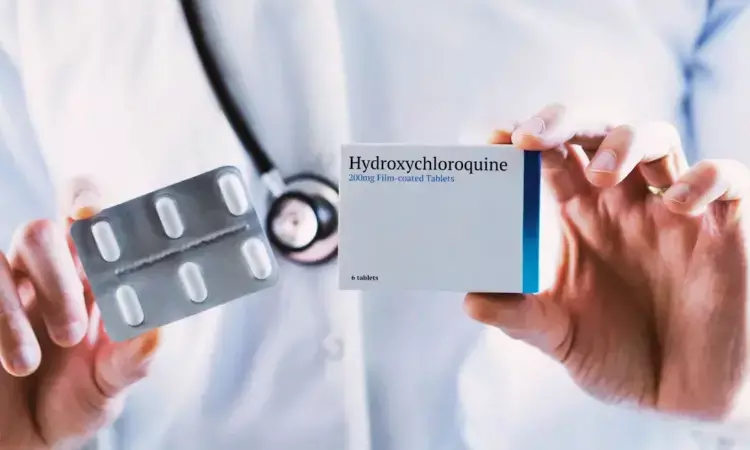- Home
- Medical news & Guidelines
- Anesthesiology
- Cardiology and CTVS
- Critical Care
- Dentistry
- Dermatology
- Diabetes and Endocrinology
- ENT
- Gastroenterology
- Medicine
- Nephrology
- Neurology
- Obstretics-Gynaecology
- Oncology
- Ophthalmology
- Orthopaedics
- Pediatrics-Neonatology
- Psychiatry
- Pulmonology
- Radiology
- Surgery
- Urology
- Laboratory Medicine
- Diet
- Nursing
- Paramedical
- Physiotherapy
- Health news
- Fact Check
- Bone Health Fact Check
- Brain Health Fact Check
- Cancer Related Fact Check
- Child Care Fact Check
- Dental and oral health fact check
- Diabetes and metabolic health fact check
- Diet and Nutrition Fact Check
- Eye and ENT Care Fact Check
- Fitness fact check
- Gut health fact check
- Heart health fact check
- Kidney health fact check
- Medical education fact check
- Men's health fact check
- Respiratory fact check
- Skin and hair care fact check
- Vaccine and Immunization fact check
- Women's health fact check
- AYUSH
- State News
- Andaman and Nicobar Islands
- Andhra Pradesh
- Arunachal Pradesh
- Assam
- Bihar
- Chandigarh
- Chattisgarh
- Dadra and Nagar Haveli
- Daman and Diu
- Delhi
- Goa
- Gujarat
- Haryana
- Himachal Pradesh
- Jammu & Kashmir
- Jharkhand
- Karnataka
- Kerala
- Ladakh
- Lakshadweep
- Madhya Pradesh
- Maharashtra
- Manipur
- Meghalaya
- Mizoram
- Nagaland
- Odisha
- Puducherry
- Punjab
- Rajasthan
- Sikkim
- Tamil Nadu
- Telangana
- Tripura
- Uttar Pradesh
- Uttrakhand
- West Bengal
- Medical Education
- Industry
Does HCQS lower preeclampsia risk in pregnant women with lupus? Study says no

USA: In an investigation of a large insurance-based database, the researchers did not find a reduced risk of preeclampsia associated with hydroxychloroquine (HCQ) treatment in pregnancy. However, the study adds that residual and unmeasured confounding and misclassification cannot be ruled out.
"We observed that 15% of singleton deliveries to patients with systemic lupus erythematosus (SLE) were complicated by preeclampsia, but we did not observe a reduction in preeclampsia risk associated with HCQ initiation," the researchers reported in Arthritis & Rheumatology.
They found that in 52% of pregnancies, SLE patients had at least one pharmacy claim for HCQ during or shortly before the first trimester of pregnancy, which lowered to 40% when we required at least two fills. The relatively low proportion of patients treated with HCQ during pregnancy in women with lupus is consistent with recently published studies, despite recent guidelines recommending HCQ treatment, the researchers noted.
Systemic lupus erythematosus is a chronic autoimmune disease that largely affects women of childbearing age. Women with SLE who become pregnant are at increased risk of complications, such as preterm delivery, preeclampsia, fetal death, and several other adverse pregnancy outcomes (APOs).
Given the obstetric safety of hydroxychloroquine and its role in SLE flare prevention during pregnancy, the American College of Rheumatology and EULAR guidelines recommend continuing or initiating HCQ during pregnancy for SLE patients.
Up to one-third of pregnancies in lupus patients are complicated by preeclampsia, although reports vary by parity and multifetal gestation. HCQ has been proposed as a potential preventive treatment for preeclampsia because it may interrupt the pathogenesis by reducing oxidative stress and targeting toll-like receptors to prevent proinflammatory cytokine production.
Against the above background, Julia F. Simard, Stanford University School of Medicine, Stanford, California, and colleagues investigated whether taking HCQ early in pregnancy may reduce the risk of preeclampsia.
For this purpose, the researchers studied 1,068 live birth singleton pregnancies among 1,020 privately insured patients with SLE (2007–2016). Hydroxychloroquine treatment was defined as three months of preconception through the first trimester, and prescription fills were a proxy for taking HCQ. Propensity scores accounted for confounders, and stratified analyses examined effect modification.
The study revealed the following findings:
- Approximately 15% of pregnant patients were diagnosed with preeclampsia.
- In 52% of pregnancies, patients had one or more HCQ fills.
- Pregnant patients exposed to HCQ had more comorbidities, SLE activity, and azathioprine treatment.
- No evidence was found of a statistical association between HCQ and preeclampsia among nulliparous (RR 1.26) and multiparous pregnancies (RR 1.20).
- Additional controls for confounding decreased the RRs toward the null (nulliparous pregnancy, propensity score–adjusted [PS-adj] RR 1.09; multiparous pregnancy, PS-adj RR 1.01).
"Further studies leveraging large population-based data and prospective collection could characterize how HCQ impacts preeclampsia risk in pregnant women with SLE and among persons at greater risk of hypertensive disorders of pregnancy," the research team concluded.
Reference:
Rector, A., Marić, I., Chaichian, Y., Chakravarty, E., Cantu, M., Weisman, M. H., Shaw, G. M., Druzin, M. L., & Simard, J. F. Hydroxychloroquine in Lupus Pregnancy and Risk of Preeclampsia. Arthritis & Rheumatology. https://doi.org/10.1002/art.42793
Dr Kamal Kant Kohli-MBBS, DTCD- a chest specialist with more than 30 years of practice and a flair for writing clinical articles, Dr Kamal Kant Kohli joined Medical Dialogues as a Chief Editor of Medical News. Besides writing articles, as an editor, he proofreads and verifies all the medical content published on Medical Dialogues including those coming from journals, studies,medical conferences,guidelines etc. Email: drkohli@medicaldialogues.in. Contact no. 011-43720751


